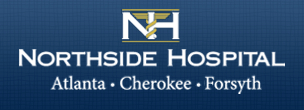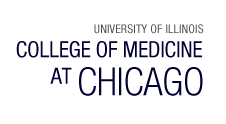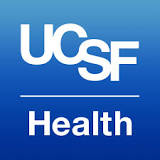Safety and Efficacy of Human Myeloid Progenitor Cells (CLT-008) During Chemotherapy for Acute Myeloid Leukemia
| Status: | Completed |
|---|---|
| Conditions: | Blood Cancer, Blood Cancer, Infectious Disease, Hematology |
| Therapuetic Areas: | Hematology, Immunology / Infectious Diseases, Oncology |
| Healthy: | No |
| Age Range: | 55 - Any |
| Updated: | 9/29/2018 |
| Start Date: | December 2014 |
| End Date: | September 22, 2017 |
An Open-Label Phase 2 Prospective, Randomized, Controlled Study of CLT-008 Myeloid Progenitor Cells as a Supportive Care Measure During Induction Chemotherapy for Acute Myeloid Leukemia
The purpose of the study is to explore the safety and efficacy of CLT-008 as an extra
supportive care measure after induction chemotherapy for patients with acute myeloid leukemia
(AML).
supportive care measure after induction chemotherapy for patients with acute myeloid leukemia
(AML).
The prolonged period of severe neutropenia caused by induction chemotherapy for the treatment
of AML is associated with a nearly universal risk of febrile neutropenia. Standard supportive
care strategies include administration of prophylactic anti-bacterial and anti-fungal agents,
but serious breakthrough bacterial and fungal infections still occur. Granulocyte
colony-stimulating factor (G-CSF; filgrastim, Neupogen®) has been shown to shorten the
duration of severe neutropenia, fever, antibiotic use and hospitalization following induction
chemotherapy for AML. CLT-008, a human allogeneic myeloid progenitor cell product, is
intended to provide the cellular target for G-CSF to produce neutrophils during the period of
chemotherapy-induced bone marrow suppression when the patient's own progenitor cells may be
limited in responding to G-CSF. It is hypothesized that the production of allogeneic
neutrophils from CLT-008 will be sufficient to mitigate the infection-related consequences of
induction chemotherapy for AML.
of AML is associated with a nearly universal risk of febrile neutropenia. Standard supportive
care strategies include administration of prophylactic anti-bacterial and anti-fungal agents,
but serious breakthrough bacterial and fungal infections still occur. Granulocyte
colony-stimulating factor (G-CSF; filgrastim, Neupogen®) has been shown to shorten the
duration of severe neutropenia, fever, antibiotic use and hospitalization following induction
chemotherapy for AML. CLT-008, a human allogeneic myeloid progenitor cell product, is
intended to provide the cellular target for G-CSF to produce neutrophils during the period of
chemotherapy-induced bone marrow suppression when the patient's own progenitor cells may be
limited in responding to G-CSF. It is hypothesized that the production of allogeneic
neutrophils from CLT-008 will be sufficient to mitigate the infection-related consequences of
induction chemotherapy for AML.
Inclusion Criteria:
1. Acute myeloid leukemia arising de novo (per European LeukemiaNet)
2. Treated with any established chemotherapy regimen based on either:
1. 7+3: Standard-dose cytarabine 100-200 mg per meter squared continuous infusion
for 7 days with idarubicin 12 mg per meter squared or daunorubicin 45-90 mg per
meter squared for 3 days
2. High-dose cytarabine-based (HIDAC) chemotherapy administering a total cytarabine
dose of ≥ 4 g per meter squared alone or in combination with other anti-leukemic
agents (for example, anthracyclines, purine nucleoside inhibitors, etoposide,
etc.)
3. Eastern Cooperative Oncology Group (ECOG) performance status of 0-2 at Screening or by
the day chemotherapy is initiated
4. Adequate respiratory function with a room air oxygen saturation of at least 92%
5. Adequate cardiac function defined as an ejection fraction of at least 45%
6. Serum bilirubin ≤ 1.5 times the upper limits of normal. Subjects with a history of
Gilbert's syndrome may be enrolled if the total bilirubin is < 3 mg/dL with an
indirect bilirubin of > 1.5 mg/dL
7. Serum alanine aminotransferase (ALT) and aspartate aminotransferase (AST) ≤ 2.5 times
upper limits of normal prior to chemotherapy
8. Serum creatinine ≤ 2 times upper limits of normal or estimated glomerular filtration
rate ≥ 60 mL/min/1.73 meter squared per Modification of Diet in Renal Disease equation
(MDRD)
9. All subjects, except post-menopausal women, must be willing to utilize a highly
effective method of contraception throughout the study
10. Adequately informed of the nature and risks of the study with written informed consent
Exclusion Criteria:
1. Pregnant or breast feeding
2. Overt central nervous system manifestations of leukemia at diagnosis
3. Specifically diagnosed and uncontrolled fungal, bacterial, viral, or other infection
(e.g. confirmed sepsis, pneumonia, abscess, cellulitis, etc.) at the day chemotherapy
is initiated. "Uncontrolled" is defined as exhibiting ongoing signs and symptoms of
infection without improvement despite antimicrobial or other treatment.
4. AML subtype M3 (promyelocytic leukemia)
5. Previous chemotherapy for AML
6. History of or current human immunodeficiency virus (HIV) or hepatitis C virus
infection
7. History of or current clinically significant immunodeficiency
8. Known contraindication to receiving G-CSF
9. History of or current clinically significant alloimmunization to leukocyte antigens
10. Participation in another clinical study within 28 days of the day chemotherapy is
initiated, in which the study drug or device may influence hematopoiesis.
Co-enrollment in another study is allowed in cases where the investigational therapy
under study is a version of an acceptable chemotherapy regimen for this study per the
inclusion criteria.
11. Receiving any agent concurrently with CLT-008 infusion which inhibits cell division
(e.g., methotrexate or hydroxyurea)
12. Acute or chronic medical disorder that, in the opinion of the investigator or medical
monitor, may prevent the subject from completing participation in the study
We found this trial at
22
sites
3400 Spruce St
Philadelphia, Pennsylvania 19104
Philadelphia, Pennsylvania 19104
(215) 662-4000

Principal Investigator: Saar Gill, MD
Hospital of the University of Pennsylvania The Hospital of the University of Pennsylvania (HUP) is...
Click here to add this to my saved trials
5801 South Ellis Avenue
Chicago, Illinois 60637
Chicago, Illinois 60637
773.702.1234

Principal Investigator: Wendy Stock, MD
University of Chicago One of the world's premier academic and research institutions, the University of...
Click here to add this to my saved trials
1000 Johnson Ferry Rd NE
Atlanta, Georgia 30342
Atlanta, Georgia 30342
(404) 851-8000

Principal Investigator: Melhem Solh, MD
Northside Hospital Northside Hospital-Atlanta (in Sandy Springs) opened in 1970. The original facility had 250...
Click here to add this to my saved trials
Chicago, Illinois 60611
Principal Investigator: John P. Galvin, MD, MS, MPH
Click here to add this to my saved trials
1801 West Taylor, Suite 1E
Chicago, Illinois 60612
Chicago, Illinois 60612
312.355.1625

Principal Investigator: Irum Khan, MD
University of Illinois Cancer Center The University of Illinois Cancer Center is dedicated to reducing...
Click here to add this to my saved trials
Click here to add this to my saved trials
1515 Holcombe Blvd
Houston, Texas 77030
Houston, Texas 77030
713-792-2121

Principal Investigator: Farhad Ravandi-Kashani, MD
University of Texas M.D. Anderson Cancer Center The mission of The University of Texas MD...
Click here to add this to my saved trials
Indianapolis, Indiana 46237
Principal Investigator: Luke P. Akard, MD
Click here to add this to my saved trials
4500 San Pablo Rd S
Jacksonville, Florida 32224
Jacksonville, Florida 32224
(904) 953-2000

Principal Investigator: James M Foran, MD
Mayo Clinic Florida Thousands of people come to Mayo Clinic in Jacksonville, Fla., annually for...
Click here to add this to my saved trials
Kansas City, Missouri 64218
Principal Investigator: Suman Kambhampati, MD
Click here to add this to my saved trials
La Jolla, California 92093
Principal Investigator: Matthew Wieduwilt, MD, PhD
Click here to add this to my saved trials
Los Angeles, California 90095
Principal Investigator: Gary Schiller, MD
Click here to add this to my saved trials
2160 South 1st Avenue
Maywood, Illinois 60153
Maywood, Illinois 60153
(888) 584-7888

Principal Investigator: Patrick J Stiff, MD
Loyola University Medical Center Loyola University Health System is committed to excellence in patient care...
Click here to add this to my saved trials
Minneapolis, Minnesota 55455
Principal Investigator: Celalettin Ustun, MD
Click here to add this to my saved trials
New York, New York 10021
Principal Investigator: Pinkal Desai, MD, MPH
Click here to add this to my saved trials
1275 York Ave
New York, New York 10021
New York, New York 10021
(212) 639-2000

Principal Investigator: Martin Tallman, MD
Memorial Sloan Kettering Cancer Center Memorial Sloan Kettering Cancer Center — the world's oldest and...
Click here to add this to my saved trials
4800 Friendship Avenue
Pittsburgh, Pennsylvania 15206
Pittsburgh, Pennsylvania 15206
Principal Investigator: John Lister, MD
Click here to add this to my saved trials
660 S Euclid Ave
Saint Louis, Missouri 63110
Saint Louis, Missouri 63110
(314) 362-5000

Washington University School of Medicine Washington University Physicians is the clinical practice of the School...
Click here to add this to my saved trials
505 Parnassus Ave
San Francisco, California 94143
San Francisco, California 94143
(415) 476-1000

Principal Investigator: Charalambos I. Andreadis, MD
University of California, San Francisco Medical Center UCSF Medical Center is recognized throughout the world...
Click here to add this to my saved trials
Click here to add this to my saved trials
Click here to add this to my saved trials
Worcester, Massachusetts 01655
Principal Investigator: Jan Cerny, MD, PhD
Click here to add this to my saved trials